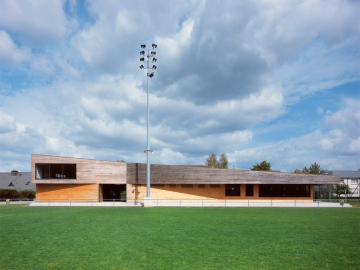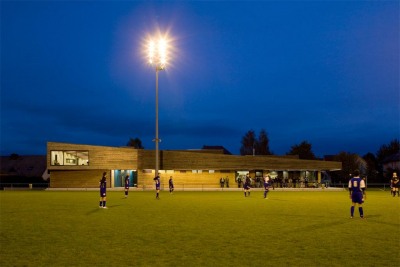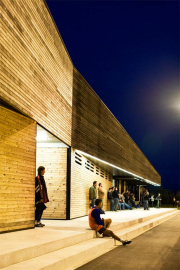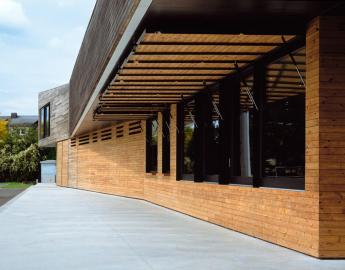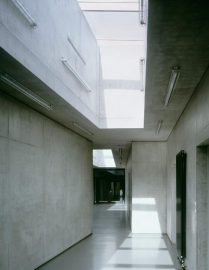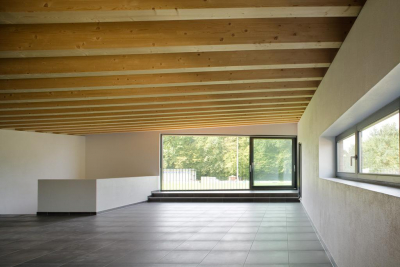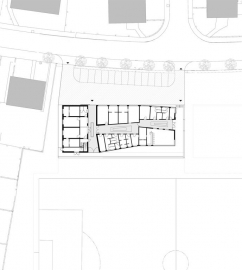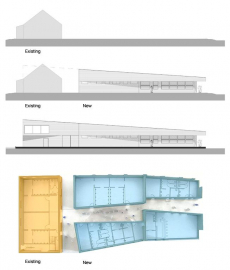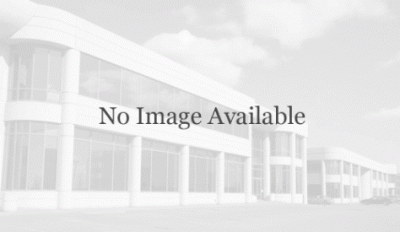Reconstruction and Extension Clubhouse Stade Albert Kongs
The municipality of Hesperange, a small town nearby Luxemburg-City, decided to upgrade the infrastructure of the Stade Albert Kongs, one of their sports facilities belonging to a soccerfield. The old changing rooms, built in the 1970s, were no longer up to modern requirements.
The challenge in this project was to create a sports facility doubling as a meeting point for the neighbourhood by transforming and extending an almost vulgar existing construction.
Careful planning allowed to keep the existing building in operation during construction of the extension.
Through the new building, the clubhouse is now in even closer relationship to the playing field. It stretches from the edge of the pitch to the level of the half-way line.
The project is expressing itself through elegant and fluid architectural lines, elaborate contrast between rough materials such as untreated wood or concrete and a strong functionality.
In line with the soccer federations requirements, the architects developed two separate entrances to divide the movement of the spectators from that of the players. The players entrance was constructed at the interface of the new and old buildings.
The development of the inner organization was thought as a layout of functional unites articulated each one as a discrete concrete block. The space in between the blocks - the circulation area - was planned as a minimalist and bright space full of light from above.
The shape of the concrete blocks and of the entire building was smoothed to ease the flow of people. The side facing the street is slightly dented, so as to guide the fans towards the ticket box. On the side facing the pitch a bend in the façade creates a covered area. The players too, are guided towards the field by the tunnel-like shape.
The entire building is clad in robust untreated wood, linking the old and the new buildings and striking a sharp contrast with the surrounding residential area.
Folding shutters make it possible to seal off the entire building.
A concrete base was built around the existing and the new building, with stepped concrete seating facing the pitch all along its length.
Rainwater, collected in an underground tank, is used for the shoe-cleaning equipment and to water the pitch.
The goal to achieve a low-tech and sustainable building made out of natural and recyclable materials, with natural ventilation and sunlight in every room was made possible thanks to the functional layout of the program, and an intelligent link between the existing and the new part of the building.
The orchestration of the complex flow of people in and around the building brought the success and acceptance of this work in a neighbourhood of low rise housing.

